Pacific Security Snapshot | 27 October 2023
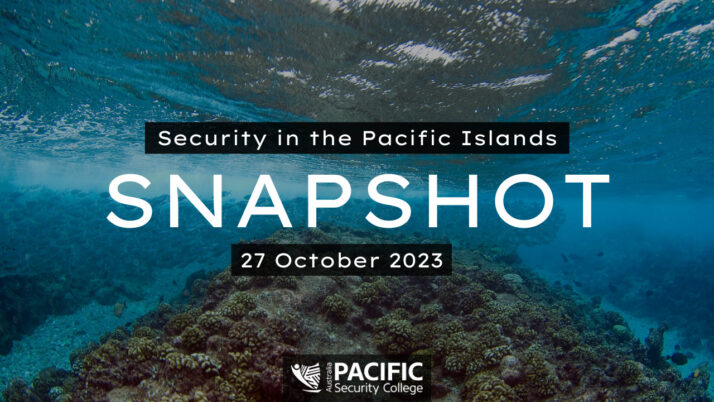
The security stories shaping the region
- Fiji Prime Minister Rabuka promotes Pacific “Zone of Peace”
- Fiji-Australia Memorandum of Understanding on Cyber Security Cooperation
- Papua New Guinea and China hold bilateral talks
- United States and Marshall Islands renew COFA
- Vanuatu, Samoa and Fiji receive Japanese human security support
- Pacific Islands Forum releases Loss and Damage Policy Primer
- Kiribati signs EU fisheries protocol
- Pacific Small Island Developing States prepare for COP28
Geopolitics
Fiji Prime Minister Sitiveni Rabuka promoted the Pacific as a “Zone of Peace” during his week-long visit in Australia. Prime Minister Rabuka provided details of what the nascent concept would mean for the region at a Lowy Institute and 2023 FDC Pacific Lecture at Old Parliament House, Canberra. Prime Minister Rabuka explained that under the Zone or “Ocean of Peace,” major powers and Pacific nations would commit to “maintaining respect for each other’s sovereignty and territorial integrity” and refraining from “actions that may jeopardise regional order and stability.” Prime Minister Rabuka further suggested that the concept support Pacific nations with armed forces to assist in other regional countries’ domestic issues, such as Fijian peacekeepers contributing to managing escalating tribal conflicts in Papua New Guinea. He has vowed to table the concept to the Pacific Islands Forum (PIF) leaders meeting in Cook Islands next month.
While in Australia, Prime Minister Rabuka met with Prime Minister of Australia Anthony Albanese. A key outcome from the bilateral talks is the commitment to a new Fiji-Australia Memorandum of Understanding on Cyber Security Cooperation to address evolving global security threats. Both Prime Ministers further agreed to work with each other and other regional leaders to enhance climate adaptation and resilience cooperation. Regarding Australia’s’ bid to co-host COP31 with other Pacific nations, Prime Minister Rabuka acknowledged that no COP host has done enough to reduce emissions and encouraged PIF leaders to “support Australia. It’s the only time we can bring the world to us … that will resonate with the rest of the world.”
Bula, g’day and welcome to Australia @slrabuka, Prime Minister of Fiji. 🇦🇺🇫🇯 pic.twitter.com/BulfOc94N3
— Anthony Albanese (@AlboMP) October 17, 2023
Papua New Guinea (PNG) Prime Minister James Marape met with Chinese President Xi Jinping in Beijing this month. The joint statement following the talks covered a number of areas of bilateral cooperation and prospective multilateral cooperation between China and the PNG including:
- the creation of Special Economic Zones (SEZs), downstream processing and value adding of renewable and nonrenewable resources.
- accelerating the China-PNG Free Trade Agreement process and complete the Joint Feasibility Study.
- forging people-to-people relations through scholarships, visits by medical teams and Chinese language teachers, and
- collaboration on the implementation of the UN Framework on Climate Change and its Paris Agreement.
The document outlines both countries’ efforts to “take cooperation between China and Pacific Islands as a whole to a new level.” This cooperation is envisioned as building multilateral frameworks on issues including emergency supplies, poverty alleviation and climate response.
The Republic of Marshall Islands (RMI) has successfully concluded negotiations with the United States (US) on a third Compact of Free Association (COFA). The COFA will provide economic assistance of US$2.3 billion to RMI over 20 years, in return for the US’ exclusive military access to the 2.1 million square kilometres of ocean surrounding the Pacific nation. US renewed COFAs with Palau and Federated States of Micronesia in May, however the RMI signing has been delayed due to ongoing issues surrounding the legacy of the US’ nuclear testing programs in the 1940s and 1950s. All three COFAs await endorsement by the US Congress.
Vanuatu, Samoa and Fiji received support towards human security projects from Japan this month. Vanuatu’s Ministry of Health received Japanese medical equipment including electrocardiographs, infant incubators and bedside X-ray machines. In Samoa, funding from Japan’s Grant Assistance for Grass-Roots Human Security Projects went towards the construction of facilities at a college and primary school. Finally, Fiji’s Maritime Safety Authority received oil spill prevention equipment and towing vehicles. Fiji Minister of Public Works, Transport, and Meteorological Services Ro Filipe Tuisawau said “Their (Japan’s) support has enabled us to embark on important projects to improve the lives of our citizens.”
Environmental Security
The PIF has released their Policy Primer on Loss and Damage Considerations for Pacific Island Countries. The paper outlines key considerations for responding to loss and damage in the Pacific context, including the development status of Pacific nations, defining local contexts and understanding diminishing adaptation potential. The paper concludes that governance continues to pose a challenge to financing loss and damage, highlighting that voluntary national commitments and donor reliant funds have failed to meet requirements. This section notes that the Pacific’s ocean stewardship and geostrategic significance provides rationale for Pacific nations to ensure all opportunities to influence international loss and damage negotiations “are leveraged.”
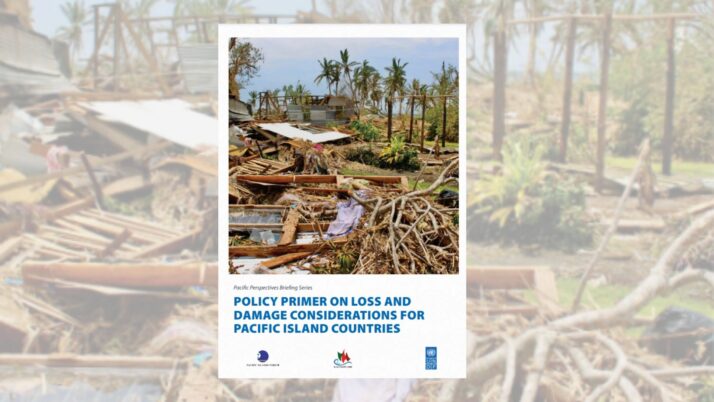
Pacific Islands Forum Policy Primer on Loss and Damage Considerations for Pacific Island Countries.
Kiribati has signed a new fisheries protocol with the European Union (EU). The five-year partnership agreement will grant the EU Pacific fleet access to Kiribati’s tuna stocks. Contributions from shipowners and the EU are anticipated to provide up to $AU30 million to Kiribati over the duration of the agreement.
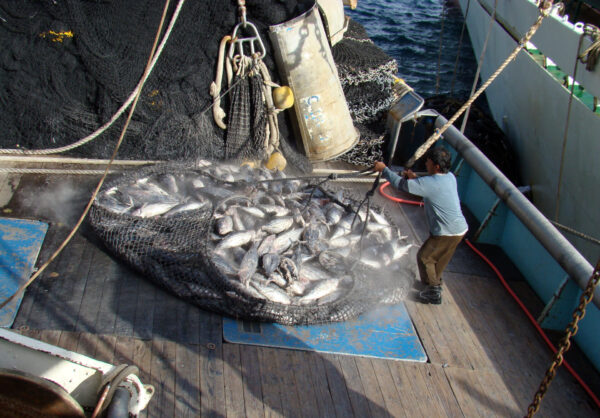
A net filled with tuna being hauled onto a fishing boat off the coast of Marshall Islands. Photo: Giff Johnson / AFP
Finally, leaders and officials from Pacific Small Islands States (PSIDS) have gathered in Apia for a preparatory meeting ahead of COP28 next month. The Chair of the Alliance of Small Islands States (AOSIS) Samoa representative Anne Rasmussen shared this message with delegates:
“Consider your uniqueness as Pacific Island nations and work hard to defend that, but understand that in doing so, you are part of a larger family of island countries that have similar needs and priorities and that we stand strongest together.”
Latest from the PSC Blog
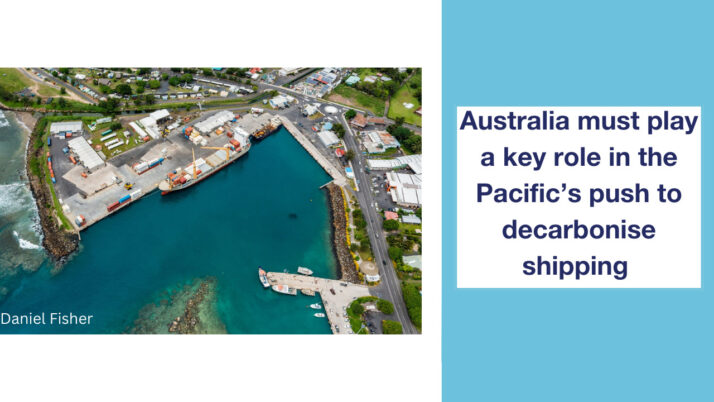
Heather Wrathall and Kate Archer from Asia-Pacific Development, Diplomacy & Defence Dialogue (AP4D) explore how Australia can work with Pacific islands to invest in new technology and take a leadership role in the decarbonisation of shipping in the region.
Read here
More Stories

Security Snapshot - 28 Mar 2024
Pacific Security Snapshot | 28 March 2024
Summary ➣ Heavy rains, floods, landslides and earthquakes batter the region ➣ Pacific submissions to the International Court of Justice (ICJ) on climate change responsibility ➣ Elections across the Pacific prompting changes to diplomatic relations and security arrangements ➣ Challenges for women in politics Climate Security Lives have been lost in PNG after a series…
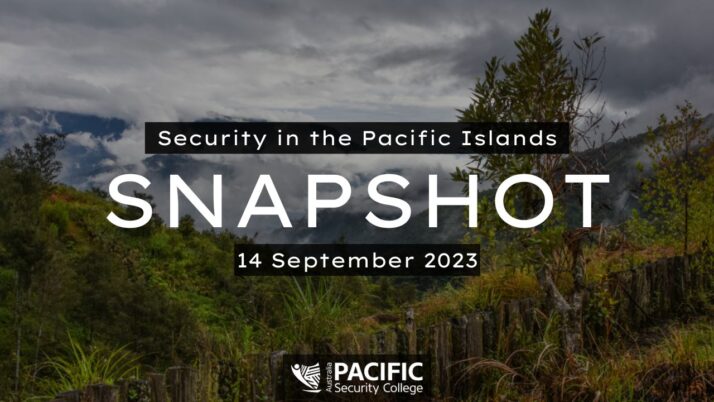
Security Snapshot - 15 Sep 2023
Pacific Security Snapshot | 15 September 2023
The security stories shaping the region ➣ Pacific Islands Forum Women Leaders Meeting ➣ Pacific High-Level Dialogue on Climate Change ➣ Fiji to sign Status of Forces Agreement with France ➣ Palau expands United States maritime law enforcement agreement ➣ Papua New Guinea special elite force to combat tribal violence ➣ Australia extends police presence…






